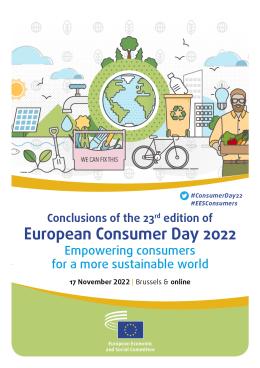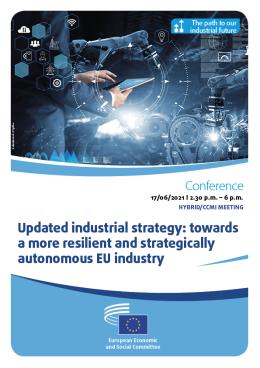European Economic
and Social Committee
Oběhové hospodářství
Přechod na oběhové hospodářství je jedním z hlavních témat programu EHSV, neboť je možným řešením boje proti klimatické krizi a ochrany naší planety. Jde o skvělou příležitost pro občanskou společnost, která může pomoci:
- zvyšovat konkurenceschopnost evropského průmyslu,
- podporovat udržitelný hospodářský růst,
- vytvářet nová pracovní místa.
Model výroby a spotřeby spočívající v získávání, výrobě a vyhazování, jenž v našich ekonomikách stále převažuje, nejen že vede k plýtvání zdroji, ale také oslabuje boj proti změně klimatu. Na rozdíl od lineárního hospodářství spočívá koncepce oběhového hospodářství v regeneraci a obnově se zaměřením na vytváření a zachování hospodářské hodnoty, díky čemuž se vypořádává s globálními problémy v oblasti životního prostředí, jako jsou změna klimatu, úbytek biologické rozmanitosti a znečištění, a zároveň přináší ekonomické výhody.
Dobrou zprávou je, že přechod k oběhovému hospodářství již prakticky probíhá. Zúčastněné strany z řad občanské společnosti, včetně podniků, odborů, akademické obce a znalostních společenství, organizací mládeže i nevládních organizací a dalších zájmových skupin, vytvářejí a zavádějí na místní a regionální úrovni mnoho iniciativ v oblasti oběhového hospodářství. Nejlepší možností, jak může Evropa urychlit přechod k oběhovému hospodářství, je stimulovat řešení, jež budou v souladu s principy oběhovosti, a vedoucí postavení příslušných zúčastněných stran.
V roce 2017 byla proto vytvořena Evropská platforma zainteresovaných stran pro oběhové hospodářství, což je společná iniciativa EHSV a Evropské komise, s cílem sdružovat komunitu zainteresovanou v oběhovém hospodářství v Evropě. Platforma řízená zúčastněnými stranami podporuje přechod Evropy k oběhovému hospodářství pomocí podpory dialogu, sdílení znalostí a výměny osvědčených postupů.









